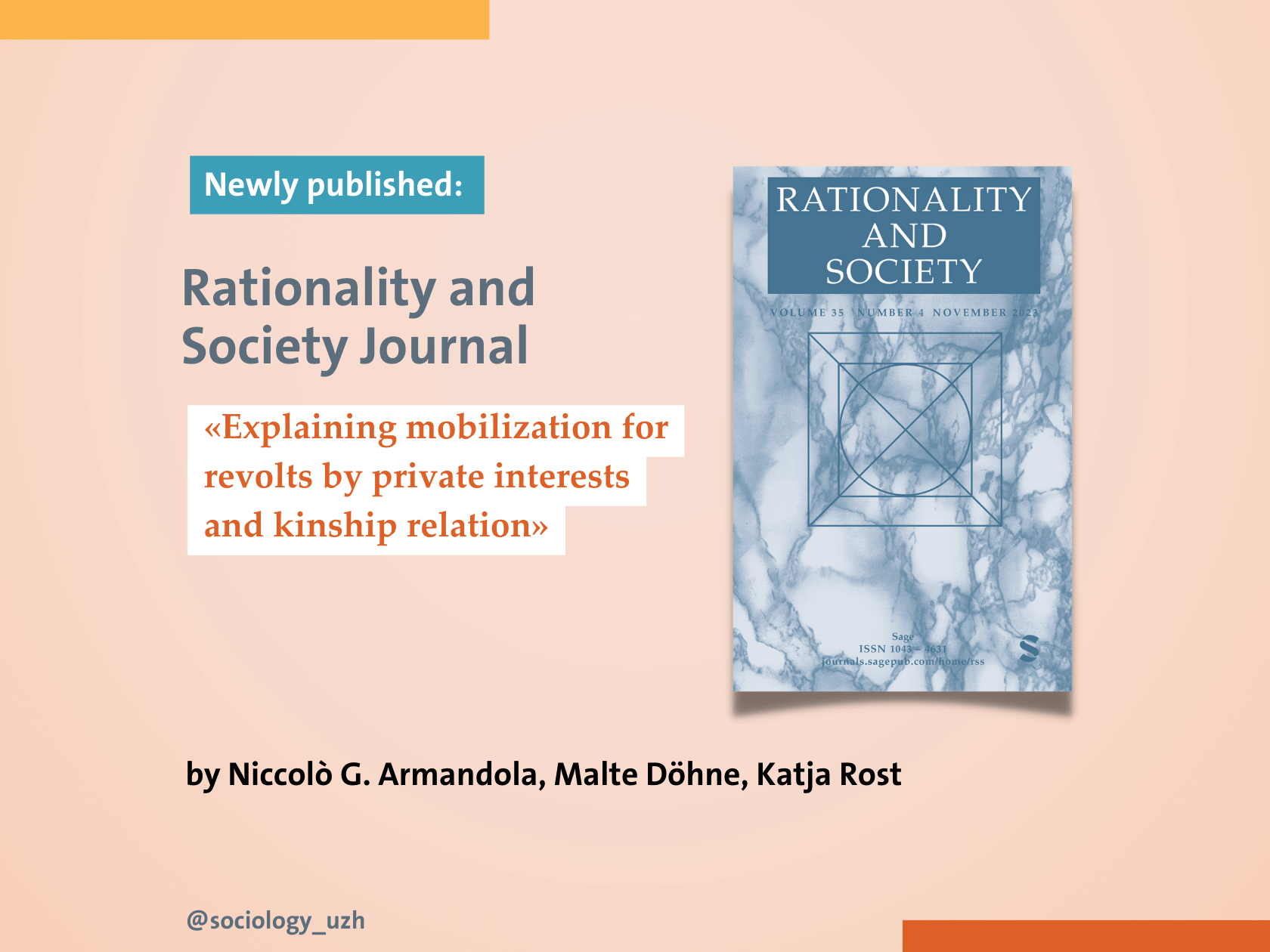Navigation auf uzh.ch
Navigation auf uzh.ch

A study by the Department of Sociology explores why people in Basel, Switzerland in 1691 joined revolts, even when it seemed against their rational self-interest. The researchers find that distant family connections to those in power can motivate individuals to participate in revolts, suggesting that mobilization for revolts is mainly driven by distant kinship relations to the ruling elite rather than close kinship relations to the rebels.
The study authors are: Niccolò Armandola, Malte Döhne and Katja Rost.
Published on December 6, 2023, in Rationality and Society.
Mobilization for revolts poses a significant challenge for rational choice theory because revolts are vulnerable to free-riding, which disincentivizes rational actors from mobilizing. Strong, informal relations such as kinship ties have been identified as factors that can shift the rational calculations of individuals and lead to mobilization for revolts. In social networks that are polarized by the presence of mobilized individuals, such as rebels, and actors opposing the mobilization effort such as the elite, kinship relations have not only a bridging effect but also a diverging one. Building on Tullock’s private interest theory, we develop a framework in which kinship relations determine the extent of individual’s payoffs and costs of mobilization for revolts against an elite. We posit that distant kin of the elite expect high payoffs of mobilization for revolts and face the lowest costs of mobilization for revolts by virtue of their position in the network of kinship relations. Using a unique, hand-collected dataset that reconstructs a revolt in Basel, Switzerland, in 1691, we test our framework and contribute to a better relational understanding of the mechanisms that lead rational actors to mobilize for revolts. Our analyses show that mobilization for revolts is mainly driven by distant kinship relations to the ruling elite rather than close kinship relations to the rebels.
Instagram Facebook